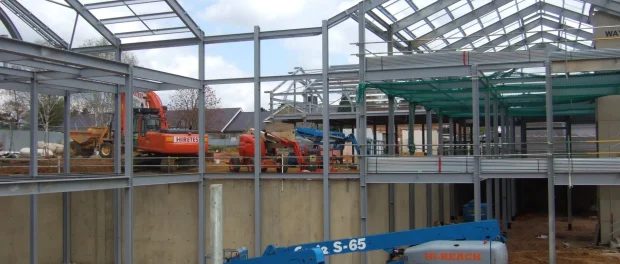The difference between civil and structural engineering

With so many similarities it’s easy to get confused on the difference – but they are! As two closely related disciplines within the construction and infrastructure industry, understanding the differences in civil engineering and structural engineering is really important to know which one to appoint for your project, or even which one to choose as a potential career.
About Civil Engineering
At companies like DSA, civil engineers are responsible for the planning, design, construction and maintenance of infrastructure projects. Including roads, bridges, tunnels, dams, water supply systems and buildings to name a few it’s a civil engineer’s responsibility to ensure they are safe, functional and sustainable. Quite often projects are large scale and involve working collaboratively with other professionals like architects, environmental engineers and urban planners.
A civil engineer will take the lead on analysing factors such as soil types and conditions, environmental impact and the material strength needed to develop efficient and long-lasting structures. At the same time, they’ll be thinking about any economic, social and environmental concerns of the project.
About Structural Engineering
A bit more specialised, structural engineering focuses more on the integrity and stability of structures that need to withstand loads, environmental forces and wear over time. A structural engineer is needed to make sure the building is safe and resilient, and constructed in line with relevant regulations.
Structural engineering is about understanding the strength and stability of materials used in construction and a structural engineer is responsible for analysing, calculating and simulating how loads and forces affect a structure, to ensure that construction projects can handle specific pressures without failure.
A career in civil and structural engineering
Like we’d suggest for most career choices. It’s always best to reflect on what your personal interests and skills are. If you’re someone who likes to be involved in things from start to finish, then you’d probably like to be the civil engineer overseeing an entire infrastructure project or urban development. However, if you’ve more of a natural aptitude for physics and mathematics and feel more passionate about designing strong and safe structures, structural engineering might be a better fit.
With your newfound understanding on how civil and structural engineering are interconnected, we hope that you feel confident in making your decision on which one you need to hire or pursue as a career.

